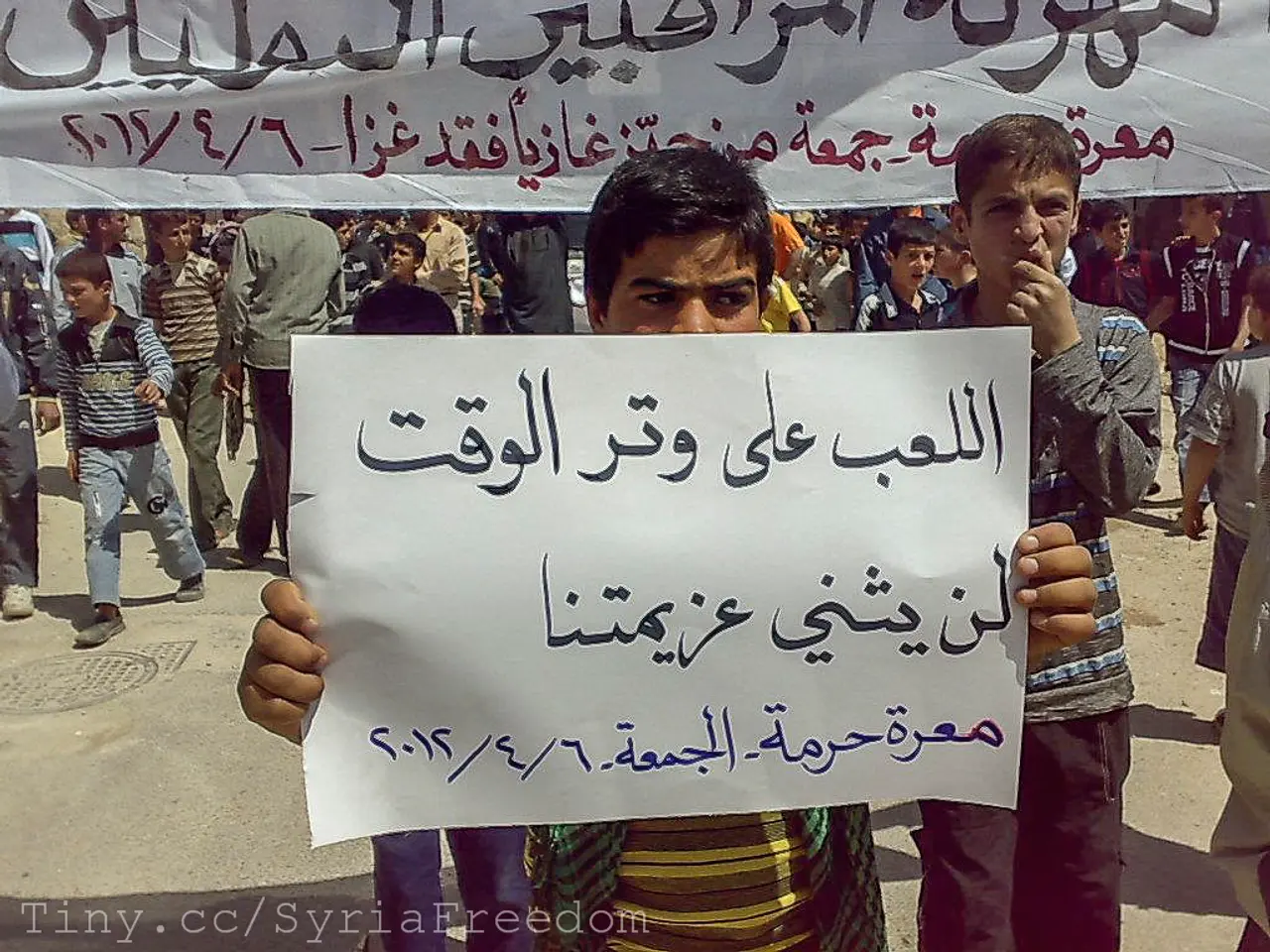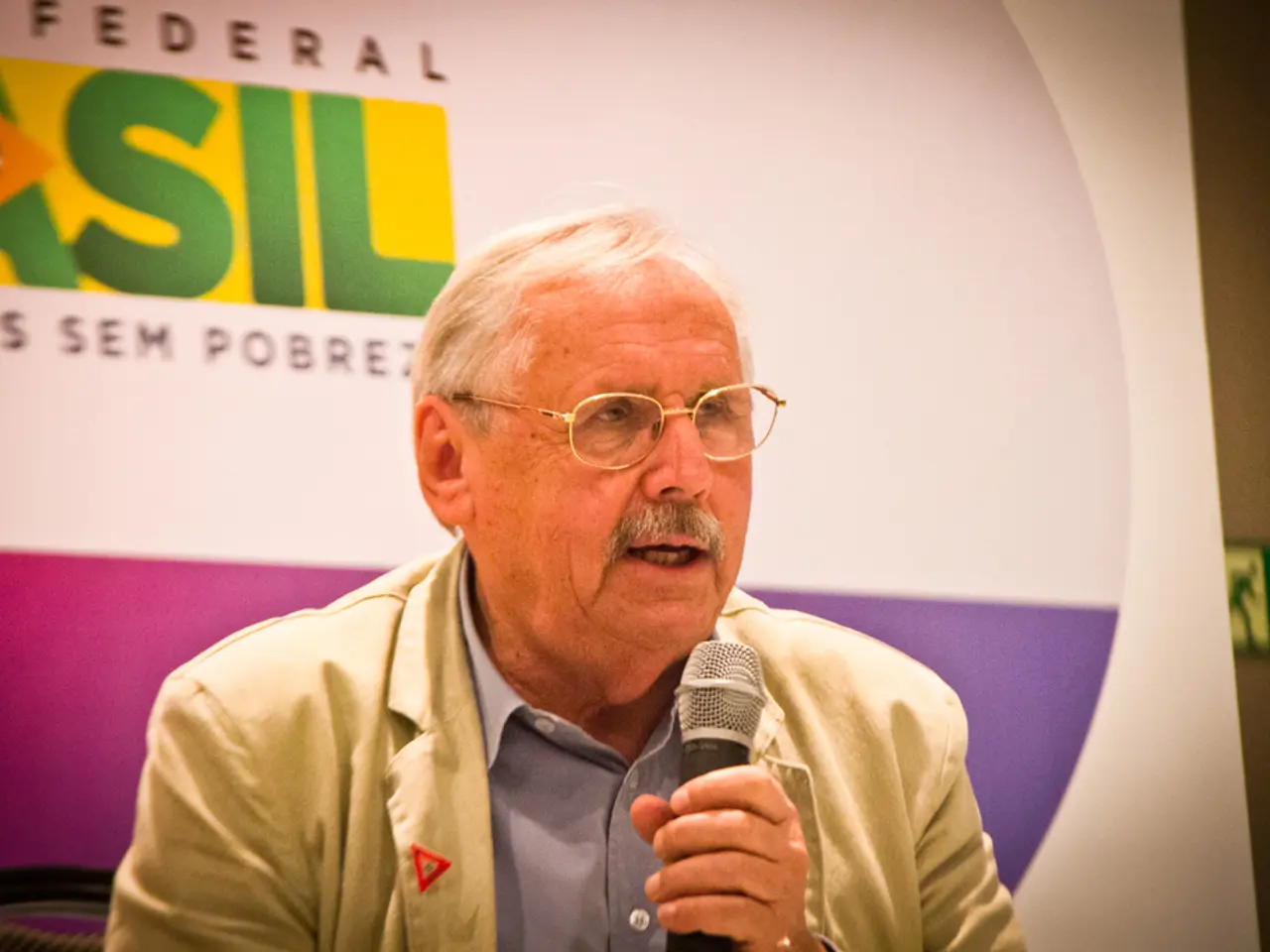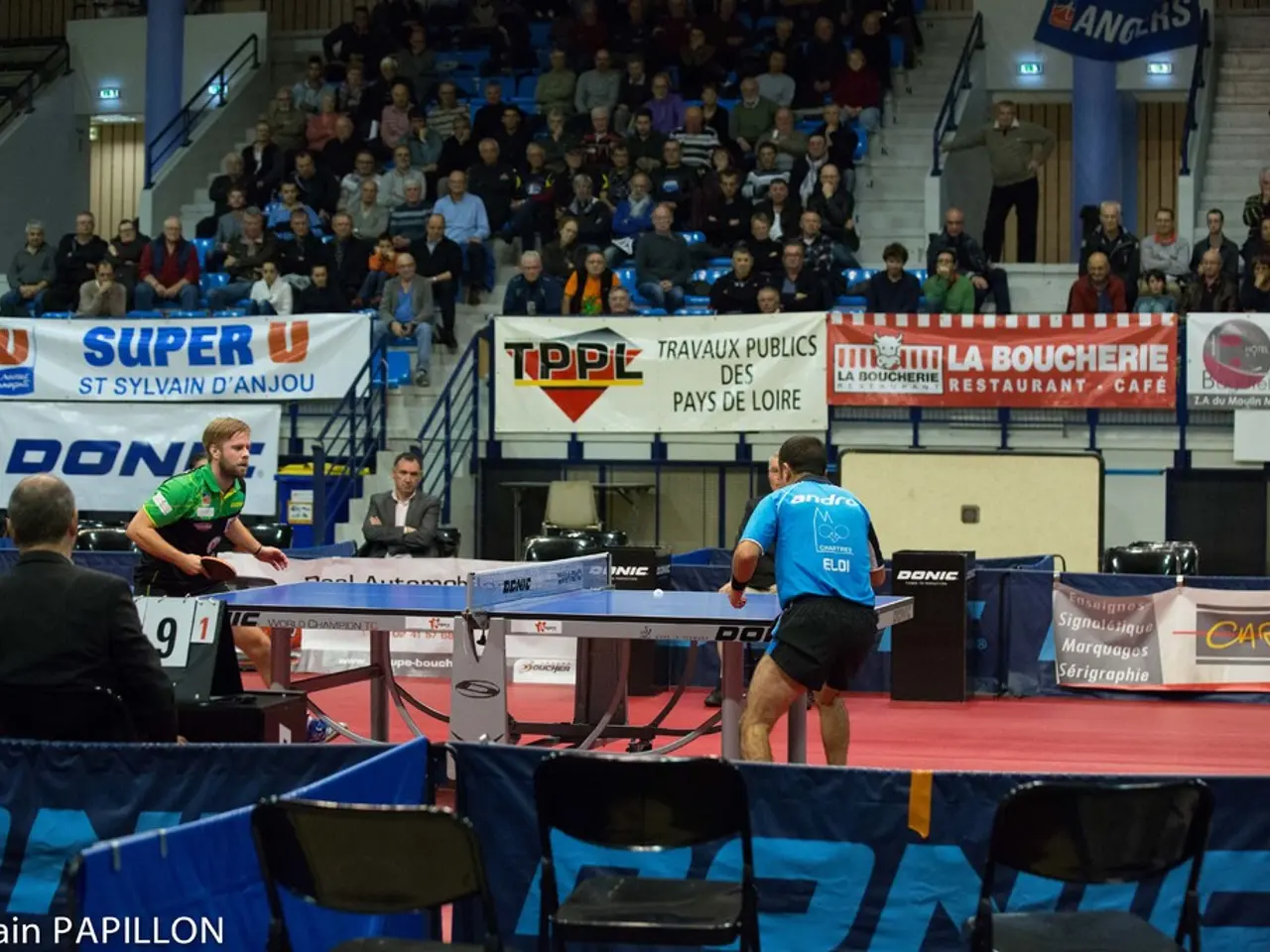Protests in Support of Palestine in Berlin - Eighteen Individuals Detained
The ongoing Gaza conflict, which erupted on October 7, 2023, has sparked a heated international debate over whether Israel's military actions can be classified as genocide. The controversy centers around evidence of intent to destroy Palestinians as a group, with growing support from human rights bodies and legal experts.
Amnesty International, among other human rights organisations, has concluded that there is a sufficient basis to claim that Israel has committed and is continuing to commit genocide against Palestinians in the occupied Gaza Strip. This assertion is based on evidence of killings, serious bodily and mental harm, and deliberately imposed conditions aimed at the physical destruction of Palestinians.
Jesuit Father David Mark Neuhaus, bridging German and Israeli identities, has also described Israel’s actions as “genocidal”. His remarks, made in June 2025, reinforce the allegations by human rights groups and the United Nations.
However, the debate is not universally accepted. Some argue that the legal threshold for genocide, which requires a very specific intent to destroy a group in whole or in part, is difficult to conclusively establish. The complexity of the conflict and contested narratives add to the challenge of reaching a unanimous consensus.
Legal scholars have shown a dynamic evolution in assessing Israel’s intent. Early in 2024, experts like Ambos did not find that Israel’s actions met the high legal threshold for genocidal intent. However, by mid-2025, these assessments shifted, with Ambos and Bock indicating that the “dynamics of the conflict now speak more in favour of genocide than against it.”
The classification of Israel's actions in Gaza as genocide remains highly contested and politically charged, reflecting the broader complexity and tragedy of the Israel-Gaza conflict. The conversation continues actively in international forums, legal analyses, and advocacy groups, with no unanimous consensus but increasing calls for accountability under international law.
Meanwhile, the conflict has taken a heavy toll on both sides. Over 1200 Israeli lives have been lost, and approximately 250 hostages have been taken to Gaza by Hamas and other Islamic terror groups. On the Palestinian side, over 56,000 Palestinians in Gaza have been killed since the conflict began, according to Hamas-controlled health authorities.
In Berlin, the debate played out on the streets as pro-Palestinian demonstrators held a rally at Schönberger Ufer, attracting around 1500 people. The rally, themed "Solidarity with Palestine - Stop the Gaza Genocide", saw FDP politician Karoline Preisler advocating for the release of hostages held by Hamas in Gaza. A minor scuffle occurred when Karoline Preisler was approached during the march, and police intervened to protect her.
The march was intended to go from Kantstraße to Wittenbergplatz via Wilmersdorfer Straße but was halted prematurely at Wielandstraße due to security concerns. Despite this, the Higher Administrative Court lifted the initial ban on the evening rally, with some passages in the speeches still being assessed, according to the spokesperson.
The debate over Israel's actions in Gaza is far from over. As the conflict continues, so does the search for justice, accountability, and peace.
General-news outlets have reported on the ongoing international debate over the classification of Israel's actions in Gaza, with Amnesty International and other human rights organizations claiming that there is evidence to support the assertion that Israel has committed genocide against Palestinians. However, this assertion is disputed by some who argue that the legal threshold for genocide is difficult to establish due to the complexity of the conflict and contested narratives. The debate has become politically charged, with protests taking place in various countries, such as Berlin, where pro-Palestinian demonstrators held a rally and advocated for accountability under international law. Politicians, legal experts, and advocacy groups continue to engage in this conversation, seeking justice and peace for both sides affected by the ongoing conflict.








